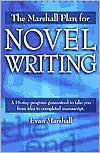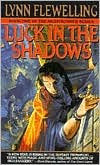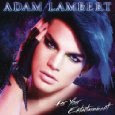First, the congratulations -- to Sherry Thomas, whose blog, Plotters & Manipulators United, is one I read from time to time. Sherry spends her time writing historical romance and doesn't blog that often, but some months ago she had some very interesting posts that I enjoyed. The congratulations are due because one of her novels, Private Arrangements, was named one of the best books of the year by Publisher's Weekly! It was one of five mass-market paperbacks to make the list. That's worth some celebrating! Congratulations on such a wonderful achievement!
[By the way, I read about writers and writing techniques from various genres, even though my focus is on fantasy, because I believe we each have a piece of a larger puzzle, and I can learn from a romance writer, a mystery writer, a horror writer, etc., and not only fantasy writers. A fantasy is that much more interesting if it has an element of romance, of mystery, etc. Historical fiction is of particular interest to me because it parallels in less fantastic terms the sort of stuff that my fantasy stories are made of.]
Now, to the Planning . . . .
Yes, a week after my last post, I'm still planning my new novel! I started writing it the last week of October. I worked on it slowly but steadily for that first week, then stopped writing in the 2rd week (early November) to do some more planning, after having written about 7k words. I was then supposed to restart the writing this past week (week 3) and carry on, which I did, starting again with a new first scene and a fresh start, but once again I wrote only so much (this time, about 9k words) then ran into issues that just begged me to stop and plan some more. It's like deja-vu, except this time I know I've been here before! Tally: three weeks, two false starts, and a lot of extra notes from planning!
What's good:
- I enjoy planning -- I really do!
- The results I'm getting are fantabulous!
- I've now got a usable MAP for the first time!
- I've even got a "character map" (more below)!
- The story just keeps getting better!
- I'm so excited about all this!
- I'm still planning!
- Gee, shouldn't I be writing?
- I'm not writing!
- My engines are revved but I haven't released the clutch!
- "Fantabulous" is not a real word!
Now, what's a "character map"? Well, I don't know what that means to you, but here's what it means to me: I used a generic drawing program (this could also be done with a text editor) and I mapped out character names on a sheet of paper. Characters who are in the same group are listed line by line without skipping any lines, usually just a few names at a time. If there is another, related group, I skip a line and then list them (for example, two opposing sides or differences in rank or other associations). I then placed these groupings of names around the page (text fields dropped onto a blank page in a drawing program). I situated the names geographically in a way that corresponds to my map of this fictional world. So, the kingdom that is in the southeast is represented by a short list of names of key characters from that kingdom, located in the bottom right area of the paper.
What good is a character map? It looks like a page with names written all over it, in bunches, and they don't even line up with proper margins!
Yes, it looks odd, but it's useful to me. I can look at my map, which I printed out in a larger size than it would appear in the book, and I can look at my character map, which shows the same geographical relations but lists the actual characters, and I can mentally work my way through the story, or sequences of the story, specific scenes, etc., and see visually who people are, where people are, who comes and goes to and from where, etc. These tools, together, help me visualize when I'm doing all this extra planning work.
I already have over 50 names on the character map. These are characters who will be named in the story. Many of them are minor characters who will appear in only a scene or two, but they interact, so these are "speaking roles" and not just "voiceless extras". There are at least a dozen "major" characters, meaning they play a significant role in a chapter or sequence of chapters, and their input into the story has an important impact on the main character and the small group of truly major characters he associates with. For me, 50+ is a lot of named characters, more than I usually work with. What's really cool: I can look at the paper and name off instantly who these characters are, and what role they play throughout the story from start to finish! All of them! So yes, I do know the story well, as well I should.
Now, as to the exact nature of the planning . . . what is it that I'm coming up with these days, and do I really need it? Is it truly so important that it justifies stalling, restarting, then stalling again the writing of this story?
As mentioned before, I already have all the major events in each of the three acts, and the major plot pillars, and many minor events along the way, and all the characters I can foresee needing, certainly all the major players. However, I still get a little fuzzy about the back-story, the history, the mythology, and the ending, as well as making sure I have the right motivations that are reasonable and true to character. In other words, I have "everything", yet everything is suspect, and I know there are some holes here or there in spite of having filled every hole I can find. As I beat my head against the wall, I find incredible new ideas dislodging from the recesses of my mind and adding themselves to the mix. The added insights and improved decisions (where I have choices) are definitely worth the extra effort. Definitely.
What I have pinned down, without giving the story away:
- What happened years ago between a man and a woman that explains why they hate each other still to this day, enough to try to destroy each other.
- The exact sequence of events that start the present circumstances -- they were always there, I just finally drew them all out in a cause-and-effect series that makes very good sense.
- Who that strange race of beings is that lives far to the north -- I always knew the simple answer, but how they are tied to the history and mythology, and the epic proportions of the story was hard to pin down among several choices (not anymore!).
- What's located inside that large body of water and why it matters, and matters, and matters.
- What's permanent, what's changeable, and why the difference.
- How the two major threads come back together -- still working on the exact details, but at least I now have a clear sense of the way this needs to unfold -- my previous version did not rise to the dramatic potential I had created, this new version certainly does.
- What's up, what's down, and why it matters.
- Details of the second and third acts that are too fine to have been explored fully yet. I want to explore as much as I can before writing, though I know I will discover more when I actually write.
- As always, the critically-important issue of the main character's strengths and weaknesses, lessons to be learned, and how this ties in to the final confrontation and resolution.
So, I'm still planning. At least I'm enjoying it!
Best wishes to everyone else with their ongoing efforts, whatever they may be,
Adrian








1 comment:
I have found that planning is 99% of my time and that outlining is 0.8% of my time and actually writing is only 0.2% of my time...
Oh crap... Where do I fit in editing?
Post a Comment